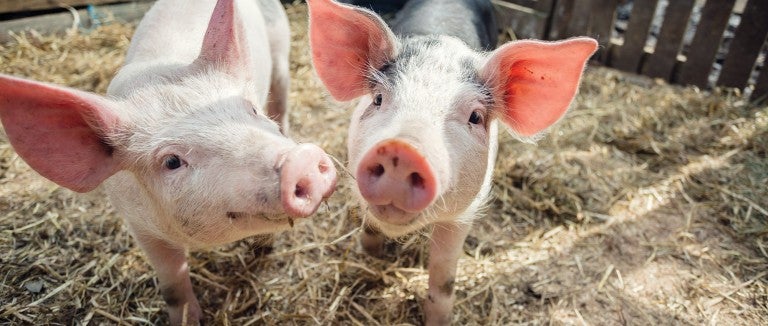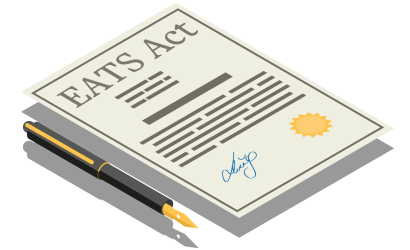In October, the Supreme Court heard a pork industry challenge to California’s Proposition 12, the world’s strongest law to protect farm animals. The Humane Society of the United States and its allies defended the law, which requires that mother pigs, egg-laying hens and calves raised for veal in California are not cruelly confined. It also bans the sale of pork, eggs and veal from animals raised in tight confinement.
After the oral argument, the HSUS and animal welfare advocates waited. And waited. Through the winter and most of the spring. So much was riding on the decision—not just the California law, approved by 63% of voters in 2018, but similar laws in other states and state animal protection legislation in general. “We were all extremely hopeful,” says Rebecca Cary, the lead attorney for the HSUS team. “But it [was] a lot of anxious months.”
As the Supreme Court’s summer recess approached, members of the HSUS legal team checked for a decision every day at 10 a.m. In May, exactly seven months after oral argument, the ruling came down: The high court rejected the National Pork Producers Council argument that Proposition 12 was unconstitutional because it interfered with interstate commerce. The Supreme Court landed on the side of animal welfare.
HSUS attorneys, working remotely, celebrated in their separate homes, hugging their pets. Cary felt a mix of emotions as she saw the decision. “Relief. Joy. Shock in terms of the fact that it had finally happened. I was just staring at that word: ‘affirmed’ … This is the hugest victory.”
Twenty minutes after the news broke, the legal team joined a video call with other HSUS staff members who had worked on the case. People were crying. One staff member was so overcome with feeling, she could not speak.
Jonathan Lovvorn, HSUS chief legal counsel, says the decision is probably the biggest ever for the HSUS and animal advocates: “It’s the first time the Supreme Court has ever ruled in favor of animal welfare.” For years, the HSUS has sought to end animal cruelty in part through state laws. Now the Court has ruled that creating laws to protect animals is a key function of state governments, Lovvorn says.
It’s the first time the Supreme Court has ever ruled in favor of animal welfare.
Jonathan Lovvorn, the HSUS
While the parts of Proposition 12 relating to hens and veal calves had already gone into effect before the May Supreme Court decision, the part relating to mother pigs finally went into effect on July 1 (legal challenges by the North American Meat Institute and Iowa pork producers continue in California federal courts). The state is requiring all pork sold in the state to comply with the law by January 1.
Most of the pork industry has been confining mother pigs in crates barely larger than their bodies. Now pigs raised by farmers who sell their pork in California will finally be guaranteed at least 24 square feet. At long last they will be able to stand up, lie down and turn around.
Want more content like this?
This was written and produced by the team behind All Animals, our award-winning magazine. Each issue is packed with inspiring stories about how we are changing the world for animals together.
Learn MoreSubscribe

